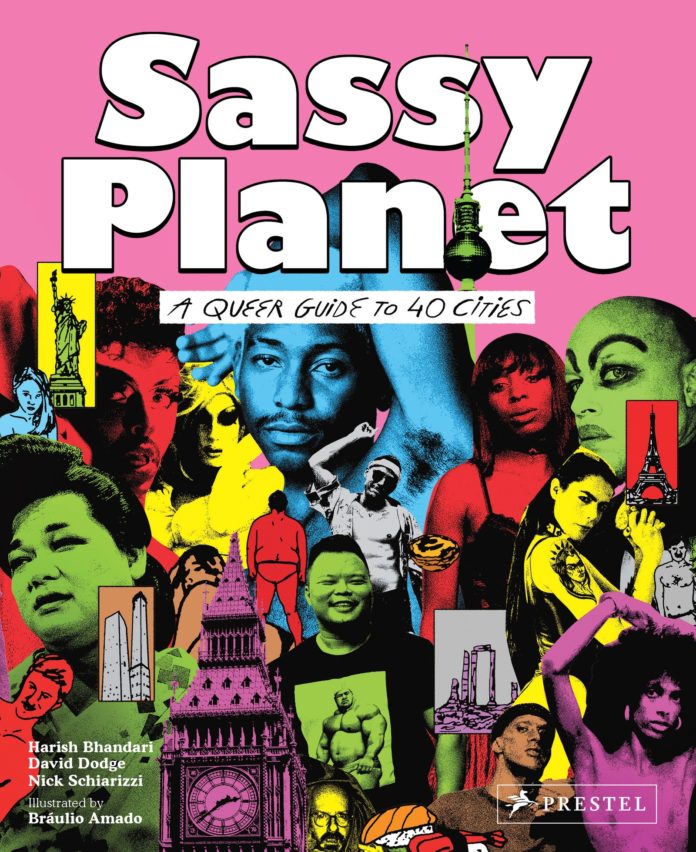Excerpted from Sassy Planet: A Queer Guide to 40 Cities, Big and Small by David Dodge, Nick Schiarizzi, and Harish Bhandari © Prestel Publishing, 2021
Jordan doesn’t criminalize LGBTQ+ identities, and trans people can even have their gender marker modified there—but locals say that being openly queer nonetheless carries a huge social stigma in Amman and across the country. Still, homosexuality has been decriminalized in Jordan for consenting people over the age of 16 since 1951. England only partially decriminalized it in 1967, whereas the United States waited until 2003 to get its act together. While Amman has few queer spaces (and many of the visible venues are dominated by the city’s large expat community and tourists), the scene is nonetheless very present, a situation unlike in many neighboring countries, where it has been forced underground.
The cover of Sassy Planet: A Queer Guide to 40 Cities, Big and Small
Prestel Publishing
A queer platform for the Middle East
My.Kali is a website and online magazine (or “webzine,” if you will) covering the Middle East and North Africa. It was established in 2007 by a group of artists, students, and political activists interested in addressing local social problems. The magazine covers a wide range of topics, including women’s rights, LGBTQ+ issues, freedom of speech, and more.
Sassy Planet: Tell us about My.Kali.
My.Kali: My.Kali magazine is a conceptual queer and feminist magazine that publishes on matters related to social issues, queerness, the alternative and underground art and music scenes, gender, sex and sexuality, identity, and orientation. My.Kali serves as a platform and as an alternative form of activism. It reflects unheard marginalized opinions, uncensored voices, and unabashed attitudes. The publication thrives on local and regional pop culture and the underground scene, using its platform to present new artistic and political concepts.
My.Kali builds on the understanding that cultural stereotypes stem from countless factors and discourses that are created and reinforced every day. It addresses these stereotypes through visually engaging features and social commentary with a local and regional flavor. We aim to demonstrate diversity and fight repressive forms and norms with art therapy, photography, and visual innovation. My.Kali is built by many bloggers, emerging and established writers, experimental photographers, and independent designers and artists, who come together from across the Middle East and North Africa (MENA) and the diaspora to put together empowering and informative editorial.








